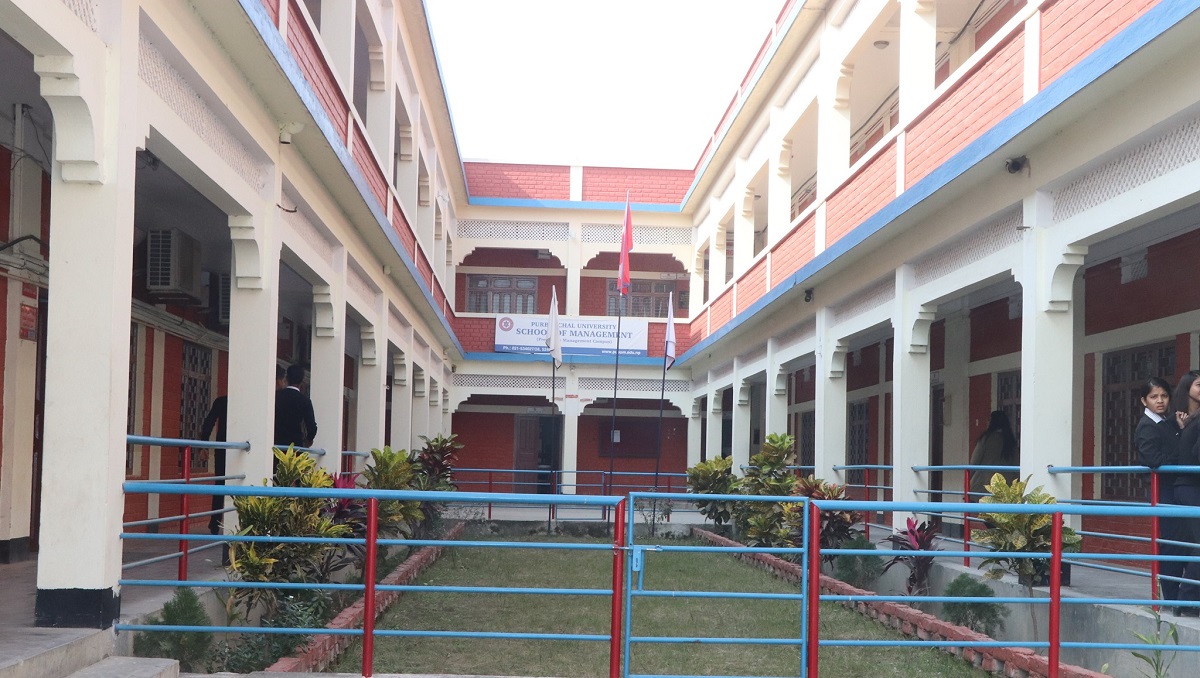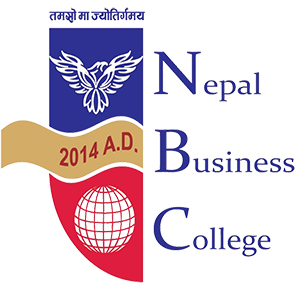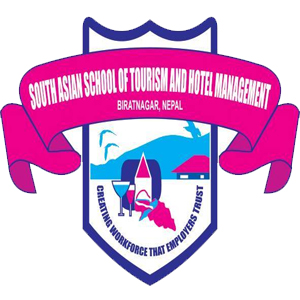Overview
Master of Business Administration (MBA) Fall Program at PUSOM, Biratnagar
The Master of Business Administration (MBA) Fall program at Purbanchal University School of Management (PUSOM), located in Biratnagar, is a comprehensive program for individuals aiming to improve their management capabilities and leadership potential.
As a leading institution for management education in Nepal, PUSOM offers a program that balances practical skills and theoretical knowledge, helping students grow in business and management.
The MBA program at PUSOM is structured to meet the needs of professionals and fresh graduates eager to advance their careers. This program is part of PUSOM's commitment to developing a capable workforce for Nepal's business, government, and social sectors.

Curriculum Details
The MBA program curriculum is thoughtfully structured to provide a broad understanding of business administration. It consists of core courses, specializations, and electives.
Core Courses
The core courses in the program help provide an essential understanding of business. They cover:
-
Financial Accounting: This course studies financial accounting principles and their business application. Students will learn about financial statements and financial analysis.
-
Managerial Economics: This course studies economic concepts and their applications in managerial decision-making. These include pricing strategy, supply analysis, and demand analysis.
-
Organizational Behavior: This course highlights human behavior in organizations. Students will learn about motivation, team dynamics, leadership, and organizational culture.
-
Marketing Management: This course discusses different marketing strategies, consumer behavior, and brand management and examines the role of marketing in business success.
-
Operations Management: This course studies the management of production processes and services. Students will learn about quality control, supply chain, and process improvement.
-
Strategic Management: This course looks at developing and implementing business strategies. Students will analyze competitive forces and the overall business environment.
Specializations and Electives
Students can select areas of focus from a list of specializations and electives. Although specific specializations may vary, examples could include:
-
Finance: This specialization offers advanced studies in financial management, investment analysis, and corporate finance.
-
Marketing: This focus covers marketing analytics, strategic marketing, and brand management.
-
Human Resource Management focuses on talent management, organizational development, and industrial relations.
-
Entrepreneurship: This specialization is for students interested in starting and managing their own businesses. It covers start-up planning, business strategies, and fundraising.
Objectives
The main objectives of the MBA program are to:
-
Develop students' abilities in different management functions.
-
Provide a deeper understanding of business management strategies and practices.
-
Prepare students for leadership roles in different industries.
-
Help ethical decision-making and professional behavior.
-
Provide a base for life-long learning and career growth.
Scope
The MBA program provides a broad range of opportunities for graduates in various fields. Students are prepared for working in Nepal's business, government, and social sectors and beyond. The program helps students in different business fields and is suitable for both experienced professionals and fresh graduates.
Learning Outcomes
After finishing the MBA program, students will be able to:
-
Apply business management principles effectively.
-
Analyze business situations and create effective solutions.
-
Communicate clearly and work together in teams.
-
Make correct decisions based on data and ethical considerations.
-
Use leadership qualities to inspire and direct teams.
Skill Development Modules
The program has different modules that help in skill development, such as:
-
Leadership Workshops: These sessions focus on improving communication, motivation, and team management skills.
-
Analytical Techniques: Students learn different types of data analysis to support data-driven decision-making.
-
Case Studies: Students analyze real-world business situations to improve their analytical and problem-solving abilities.
-
Business Simulations: These activities help students practice making decisions in a realistic business environment.
Teaching Methodology
The teaching methodology involves various approaches, including classroom lectures, interactive discussions, case study analysis, group projects, and practical exercises. This allows students to understand the concepts effectively. The experienced faculty use different methods to create a dynamic and engaging learning environment.
Faculty Expertise
The faculty team includes experienced instructors with in-depth knowledge of their respective fields. The faculty is committed to guiding students through the entire program. They also provide mentorship and valuable insights for students, helping them grow in management.
Admission Requirements
Applicants to the MBA program at PUSOM must meet specific criteria. These usually include a bachelor's degree from a recognized university with a particular score. Candidates may also be required to take an entrance exam and attend an interview. The college website has specific criteria and deadlines.
Career Opportunities
MBA graduates from PUSOM have many career choices. They can work as managers, analysts, consultants, and executives in the private and public sectors. The program prepares them for various job roles in management and business, which include:
-
Financial Analyst
-
Marketing Manager
-
Human Resource Manager
-
Operations Manager
-
Business Consultant
-
Entrepreneur
Student Life and Extracurricular Activities
PUSOM encourages students to participate in extracurricular activities, including seminars, sports events, cultural festivals, and student clubs. These activities help students enhance their skills and network with other students. The college also organizes educational tours and internships for students to gain practical knowledge.
Scholarships and Financial Aid
PUSOM offers different scholarships and financial aid options to help students achieve their academic goals. Support is provided based on the student's educational achievements, financial situation, and other criteria. Details about financial aid, eligibility, and the application process are available on the college website and admissions office.
Why Choose This Course?
The MBA program at PUSOM provides several advantages:
-
Holistic Curriculum: The curriculum has core courses, specializations, and electives to meet various career interests.
-
Hands-on Knowledge: Students are trained in practical skills through case studies, group projects, and real-life examples.
-
Career Advancement: The program suits professional growth and career development in many industries.
-
Experienced Faculty: Students learn from faculty who are well-experienced in their fields.
-
Networking: The program helps students connect with other students, alumni, and industry experts.
Why Choose This College?
PUSOM is an excellent choice for students for several reasons:
-
Proven Track Record: PUSOM has a long history of providing high-quality management education in Nepal.
-
Academic Excellence: The college focuses on academic development and preparing students for the business world.
-
Affordable Fees: The college offers quality education at affordable fees, making education accessible.
-
Facilities: PUSOM offers various facilities, including a library, computer lab, and sports facilities, to ensure a complete learning experience.
-
Location: The college's location in Biratnagar provides a peaceful and suitable study atmosphere.
Conclusion
The MBA Fall Program at PUSOM offers a thorough and valuable educational experience for students looking to enhance their management skills. With a comprehensive curriculum, outstanding faculty, and a commitment to student success, the program is a perfect choice for those planning a better career in the dynamic world of business. It helps prepare graduates to take on different business, government, and social leadership roles.

















